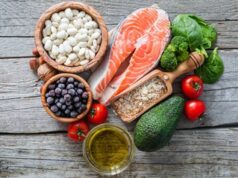INTERNATIONAL REPORT—The aim to reduce food waste and offer more low carbon foods in the hospitality industry is set to be a key focus for the Sustainable Hospitality Alliance’s (SHA) partnership with World Resources Institute (WRI).
The Sustainable Hospitality Alliance and WRI have a shared commitment to helping the hospitality industry reduce its food-related emissions by 25 percent by 2030. By shifting to low carbon foods and reducing food waste the industry can maximize its action on climate change and meet its targets for addressing the climate crisis.
The partnership aims to engage employees and customers by bringing the latest science to the industry and provide networking opportunities to share lessons in reducing food-related emissions. As part of this activity, WRI attended and supported the Alliance’s annual summit earlier last month.
The partnership will include WRI helping to formally verify that the Alliance’s renowned Hotel Carbon Measurement Initiative (HCMI) aligns with the GHG protocol. The HCMI has recently been updated by the Alliance and they look forward to it being peer reviewed.
Push Toward Coolfood Pledge
The Alliance will urge its members, representing over 50,000 properties and 7 million rooms globally, to commit to the Coolfood Pledge, as part of the partnership. This WRI initiative is a science-based target to reduce food-related emissions by 25 percent by 2030.
Those committed to the Coolfood Pledge receive individualized data analysis in an annual GHG emissions report to track progress in reducing GHG emissions. The aim is to provide an understanding to the industry as to what works with consumers to shift more diners toward plant-based foods.
Alliance members will be urged to join the Friends of Champions 12.3 network, which helps organizations use a “target-measure-act” approach to halve food loss and waste by 2030. This target aligns with the UN Sustainable Development Goal Target 12.3. “Friends of Champions 12.3” is part of the Champions 12.3 network, of which WRI serves as secretariat.
World-class research and cutting-edge resources will also be available to members of the Alliance who are on the journey towards Net Positive Hospitality.
Comments from Participants
Sustainable Hospitality Alliance CEO, Glenn Mandziuk, said: “We are delighted to be partnering with World Resources Institute to move the hospitality industry towards food sustainability. Combining the Alliance’s resources and knowledge with WRI’s expertise and platforms, this partnership can help accelerate our members towards reducing food waste and food-related emissions. We look forward to our Hotel Carbon Measurement Initiative (HCMI) being peer reviewed by WRI, which will serve as an important step to ensuring a transparent and globally comparable approach to carbon, water, and waste reporting.”
Liz Goodwin, Senior Fellow and Director, Food Loss and Waste at WRI, said: “Reducing food waste is a triple win for the hospitality industry—it helps meet important sustainability targets, engages customers, and can save significant money. Research has shown that hotels have saved $7 for every $1 invested in fighting food waste. By joining Friends of Champions 12.3, SHA is connecting its members to a network of businesses and others who are leading the fight to halve food loss and waste by 2030.”
Jenny Arthur, Head of Membership Development for Coolfood at WRI, added: “This partnership sets the hospitality industry up to significantly reduce the climate footprint of the food it serves. Through Coolfood, companies will have access to cutting edge behavioral science on how to sell low carbon food, as well as rigorous data and support to help them reduce emissions. We’re excited to welcome them to the movement for delicious climate action.”
Key Statistics on Food & Sustainability
- The production of food including agriculture and related land-use change (e.g., deforestation) accounts for nearly a quarter of global greenhouse gas (GHG) emissions. Shifting diets is essential to hit the global climate targets.
- As the world population approaches 10 billion by 2050, emissions from agriculture and land could grow to take up the majority of the “carbon budget” for limiting global warming to acceptable levels.
- Beef requires 20 times more land and emits 20 times more GHG emissions per gram of edible protein than common plant proteins, such as beans. Helping more people shift away from meat-centered and toward more plant-forward diets can have tremendous climate and other environmental benefits.
- More than one billion tons, or one-third of all food produced, is lost, or wasted each year.
- Approximately 17 percent of food is wasted at the retail and consumer levels.
- Current levels of food loss and waste are responsible for wasting a quarter of all the fresh water used in agriculture, wasting nearly a quarter of all the fertilizer that is used, using an amount of land greater than the area of China, which could have otherwise been used for food that was consumed, driving 8 to 10 percent of global greenhouse gas emissions, costing the global economy more than $1 trillion every year.







